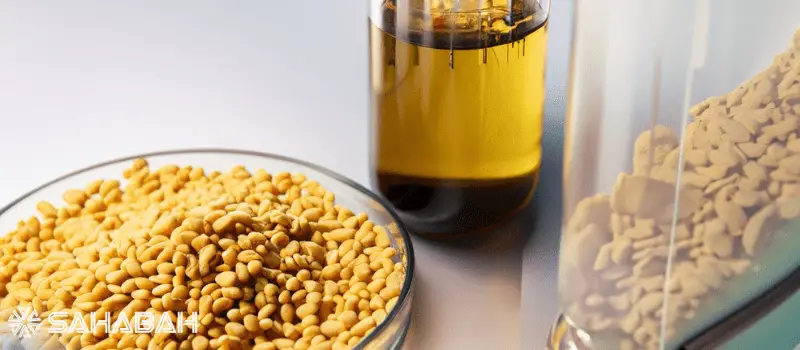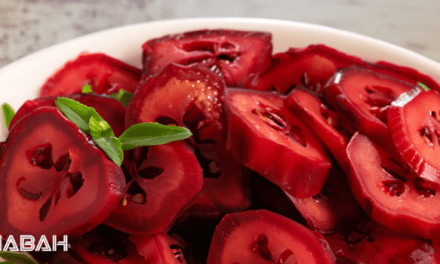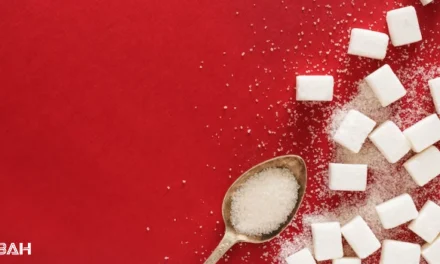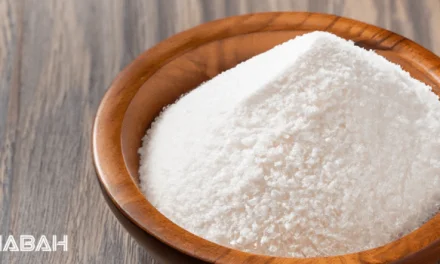As a consumer who values both dietary preferences and religious beliefs, I have often found myself questioning the halal status of various food ingredients. In this article, we will delve into the world of lecithin, uncovering the truth behind its halal certification, exploring the complexities of soy lecithin, emulsifiers, and more, to provide you with the knowledge you need to make informed choices about the foods you consume.
Investigating the Halal Standing of Lecithin (E322)
Lecithin is a fatty substance that is commonly used as an emulsifier and stabilizer in many foods. It has the ability to keep ingredients that normally do not mix together, like oil and water, combined in a homogeneous mixture.
Some common food applications of lecithin include:
- Margarine
- Chocolate
- Ice cream
- Baked goods
- Powdered mixes
Lecithin is approved by food regulatory agencies around the world, including the FDA and EFSA, as a safe and effective food additive.
There are different sources that lecithin can be derived from:
- Soybeans
- Sunflower seeds
- Eggs
- Rapeseed
- Cottonseed
The most common source of commercial lecithin is soybeans. The lecithin is extracted from the soybean oil during processing. As IFANCA notes:
If the lecithin is derived from plants, such as soybean, corn or sunflower, it would be considered Halal. If it is derived from animal sources such as egg yolk, it would be considered non-Halal unless it has gone through a chemical change during processing to extract the lecithin.
The halal status of different sources of lecithin is an important consideration for Muslim consumers.
Sources of Soy Lecithin
There are several sources that commercial lecithin is derived from:
Soybean Lecithin
- Most abundant and widely used source of lecithin
- Extracted from soybean oil during processing
- Considered halal by most Islamic scholars
Soy lecithin is considered Halal as lecithin derived from soybean is pure and obtained through mechanical processes.
Sunflower Lecithin
- Gaining popularity as a plant-based alternative to soybean lecithin
- Extracted from sunflower oil
- Also considered halal by most scholars
Egg Lecithin
- Derived from egg yolks
- Not halal according to majority of scholars
Egg lecithin is not Halaal. It is extracted from the membranes of egg yolk. Egg is not Halaal.
So in summary, soybean and sunflower lecithin are generally considered halal, while egg lecithin is not due to its animal source.
Halal Status of Different Lecithin Sources
The halal status of lecithin depends on the source it is derived from.
Soy Bean Lecithin
- Considered halal by most Islamic scholars
Soy lecithin would be considered Permissible and Halal. Soy Lecithin is derived from plants such as soybean, corn or sunflower is permissible.
- However, there are some concerns:
- Possible cross-contamination with non-halal sources during processing
- Use of alcohol as a solvent during extraction
Sunflower Lecithin
- Also regarded as halal by most scholars
- No major concerns over processing
Egg Lecithin
- Not considered halal due to animal source
Egg lecithin is not Halal because it is extracted from egg yolk which is not Halal.
So in summary, soy and sunflower lecithin is extracted from vegetables so is generally halal , while egg lecithin is not due to coming from an animal source. Processing methods may raise concerns over soy lecithin’s halal status.
Issues and Debates
There are some issues and debates that have been raised over the halal status of lecithin derived from plant sources like soybeans.
Possible Cross-Contamination
-
Lecithin derived from soy or sunflower could potentially become contaminated with non-halal substances during processing and handling.
There is a possibility of contamination with non-Halal ingredients when processed on common equipment.
- Proper quality control is needed to prevent cross-contamination.
Use of Alcohol Extraction
-
In some cases, alcohol may be used as a solvent to extract the lecithin during processing. This concerns some Muslims.
The only issue is the use of alcohol during the extraction method. This is controversial due to differences of opinion on traces of alcohol.
- Alcohol-free extraction would be preferred.
So in summary, possible cross-contamination and use of alcohol extraction raise some concerns over the halal status of soy lecithin for some Muslim consumers.
Certifications and Standards
To ensure the halal status of lecithin, there are some certification standards and organizations that can provide verification:
Halal Certification
-
Lecithin certified as halal by an accredited Islamic organization like IFANCA provides assurance that it is permissible according to Islamic law.
Halal certification involves inspection of the lecithin production facilities and processes by Muslim supervisors. This verifies that Islamic dietary regulations are met.
Alcohol-Free
- Some halal standards require that no alcohol be used in the processing and extraction of lecithin.
Non-GMO
- Since most soybean crops are genetically modified, some standards require non-GMO verified soy sources.
So in summary, certified halal, alcohol-free, and non-GMO lecithin can provide Muslim consumers with assurance that it meets Islamic dietary requirements.
Is Lecithin Halal Or Haram FAQ
Is lecithin halal?
Lecithin can be halal if it meets certain criteria and is derived from permissible sources. The halal status of lecithin depends on its source and the method of extraction. It is important to obtain lecithin from halal sources and ensure it has halal certification.
What is lecithin?
Lecithin is an emulsifier commonly used in food manufacturing. It is derived from various sources such as soybeans, sunflower, or animal products.
Is soy lecithin halal?
Soy lecithin can be considered halal if it is derived from permissible sources and obtained through halal extraction methods. It is important to check for halal certification on soy lecithin products to ensure its halal status.
Is lecithin halal or haram?
Lecithin is neither inherently halal nor haram. Its halal status depends on its source and the method of extraction. It is necessary to determine the halal status of lecithin through proper certification and understanding of Islamic dietary guidelines.
What is the halal certification for lecithin?
The halal certification for lecithin ensures that it is sourced from halal ingredients and produced using halal techniques. Look for the halal symbol or certification from reputable halal certifying bodies when purchasing lecithin or lecithin-containing products.
Can lecithin be derived from non-plant sources?
No, lecithin is typically derived from plant sources such as soybeans, sunflower, or other vegetable extracts. Lecithin sourced from non-plant origins would not be considered halal.
Is soy lecithin halal if it is derived from soybeans?
Yes, soy lecithin is halal if it is obtained from permissible sources such as soybeans and extracted using halal methods. It is important to ensure proper halal certification to confirm its halal status.
Is lecithin halal according to Islamic law?
Whether lecithin is considered halal according to Islamic law depends on its source and the method of extraction. It is advisable to consult with scholars or halal certifying agencies to determine the halal status of lecithin
Conclusion
In summary, the halal status of lecithin depends on its source and processing methods:
-
Lecithin derived from plant sources like soybeans and sunflowers is generally considered halal by most Islamic scholars.
Sunflower Lecithin is plant-based and Halal certified.
-
However, the use of potential alcohol extraction and lack of quality control to prevent contamination are concerns for some Muslims.
-
Egg lecithin is not regarded as halal due to its animal source.
-
When purchasing lecithin, looking for halal certification by an accredited organization can verify its permissibility according to Islamic law.
-
Halal certified, alcohol-free, and non-GMO lecithin provide assurance for Muslim consumers about purity and processing methods.
In conclusion, lecithin from plant sources like soy and sunflower can be considered halal if care is taken to prevent cross-contamination and use of alcohol during extraction and processing. Halal certification gives added assurance of its permissibility.





